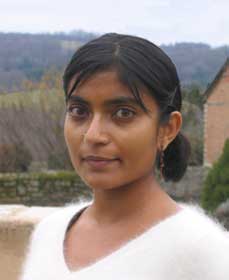Is Reading Still Relevant: Interview with Dr. Ang Sze Wei
Chialin Yu our correspondent on Chinese Women Writers attended the 10th Hong Kong Literature Festival and caught up with Dr. Ang Sze Wei of Hong Kong University’s Department of Comparative Literature.The Hong Kong Public Library had invited her to give a talk called “Why We Read”. Chialin interviewed her on her thoughts about reading, its relevance in this multi-media world, and how reading affects our perceptions of the world.
—
If you can only use one word to describe why you read, what would that be?
If I had to use only one word to describe why I read, I would say, “curiosity”. I read because books show me that I have so much more to learn about the world, and about what it means to be human. Sometimes, it’s exciting to read books that puts into words the feelings or hunches that we have but couldn’t articulate. But sometimes, it’s exciting to read about what we never thought was possible too.
You’ve said that reading can be uncomfortable, how so?
Reading is uncomfortable when we read books, articles, essays, fiction, or poetry that challenges our ideas about what is “normal“. We don’t always realize that we have certain perceptions about how life or relationships should work, and when a text shows us that we operate under assumptions that may not be true or desirable, we often feel anxious or discomfort because we have to either change the way we think, or we have to spend a lot of time working out in our mind why we disagree with the text. This is not an easy process and often takes a lot of thought. Some kinds of literature can produce discomfort because they don’t offer easy answers or solutions to the problems we see around us.
Does literature contribute differently than other media in building a more comprehensive view of the world around us?
Yes, and no. Different forms of media often overlap and work in similar ways. For example, most films depend on narratives or stories too, and literature has often been valorized because it allows us to “see” images in our own minds. I do think that novels are important because you have to train yourself to sit and read a text the whole way through. Novels are not always long though, so the length of a piece doesn’t determine its contribution! So, yes, literature–this includes short stories and poetry–does teach us to see the world in important ways. They are not the only means through which we can understand our world, but we cannot do away with literature either.
Do you think literature is still relevant when we are bombarded with all kinds of other media?
Yes, it is still relevant because artists still offer us representations of human culture and human desires through the medium of the printed word, and until the writers and artists in our midst choose to stop writing literature, literature will be relevant. Their vision of the world is a valuable contribution to our cultures, and to dismiss literature would be to dismiss what they have to say.
Do you think that literature can perpetuate stereotypes?
Yes, it certainly can, and canonical writers have been criticized for perpetuating damaging and inaccurate representations of peoples and cultures. Critics working in academia have been very sensitive to this problem, although it does still exist in contemporary literature.
If literature tells of times of injustice, mistreating people, degrading women, does it cause damage for people to continue to read it?
On the one hand, this would be less of a problem if one is trained to be a sensitive reader because often, good books represent acts of violence in order to criticize the conditions that give rise to those acts. Readers should not accept everything that is presented to them on the page, and rigorous reading requires us to pay careful attention to what we’re reading, and that’s why reading well is so often difficult. It becomes a little easier with practice, but even when one is in the habit of reading closely, reading can be difficult too.
However, critics do debate the value of exploitative literature where violence against women or other minorities is inserted merely for entertainment or to titillate. After all, what does it say about us as a society if we think that entertainment value can be derived from the suffering of others?
Would you recommend some books for our audience who love to gain a deeper understanding on Asian Literature?
Arundhati Roy- The God of Small Things
Gloria Naylor,- The Women of Brewster Place
Preeta Samarasan- Evening is the Whole Day
Louise Erdrich- The Round House
——
About Dr. Ang Sze-wei. Prior to joining the Department of Comparative Literature at University of Hong Kong, Ang Sze-wei was a Mellon Postdoctoral Fellow in the Department of Comparative Literature at UCLA where she taught classes that took up the questions of race, ethics, and the cultural role of religious discourses within the areas of Asian American and South East Asian Studies. She defended her dissertation at Cornell University in the summer of 2008
Follow SzeWei by email alert through the HKU Scholars Hub.
Category: Asian Women Writers, By Current and Past Interns, Contemporary Women Writers, Interviews, On Writing





























Great interview, and couldn’t agree more. Thank you!